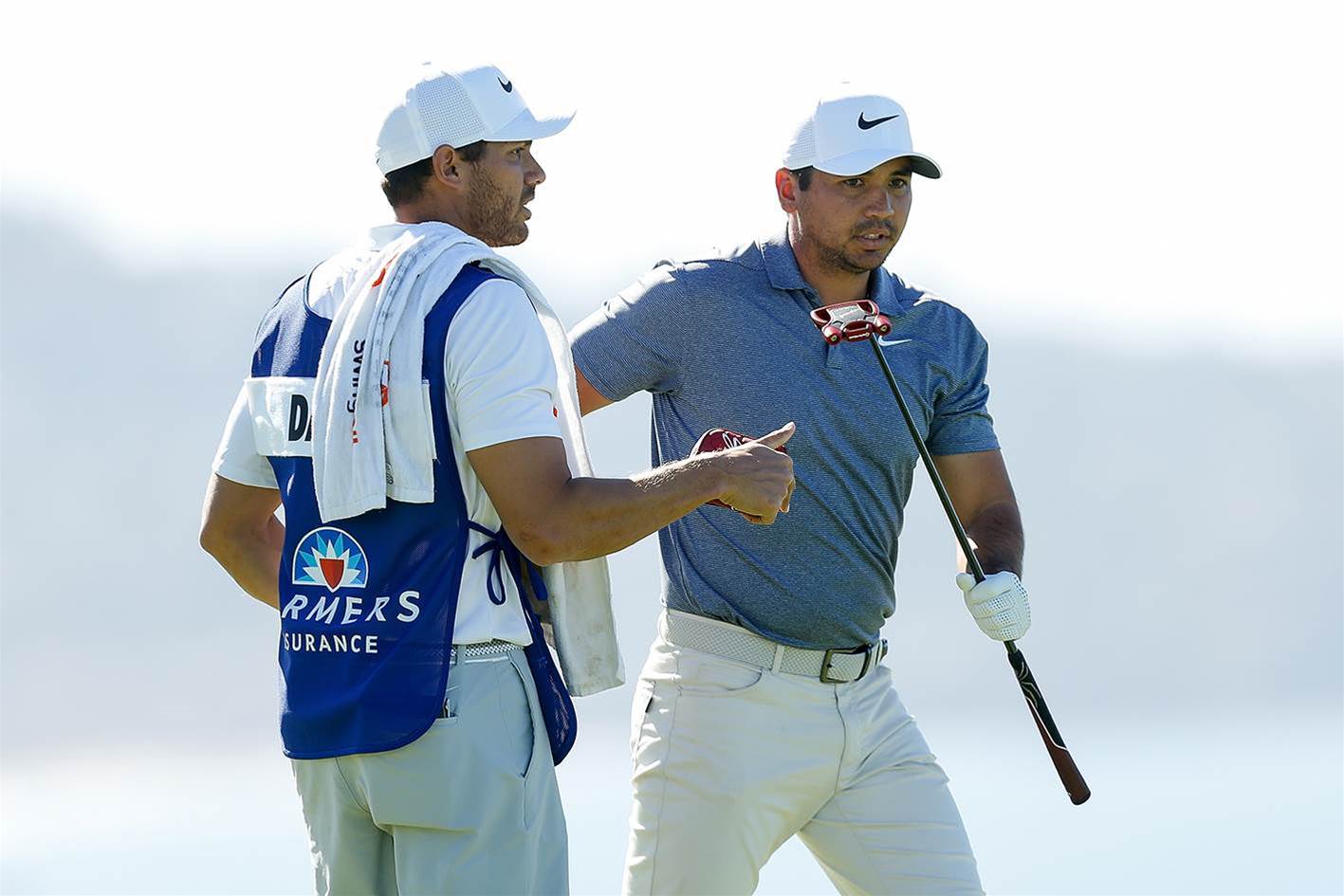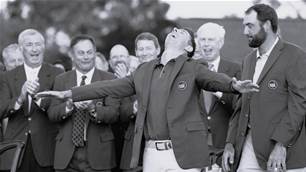It’s a simple question. But not one that has, at least for this long-time observer of all things golf, never really provided an easy answer.
How important is a caddie to a player?
I ask (yet) again because of a trend that has gradually developed at the sharp end of the game over the last couple of years. Eschewing the opportunity to employ a gnarled old veteran of the links, a flurry of high-profile professionals are currently walking inside the ropes alongside a relatively inexperienced band of friends
and relatives.
Rory McIlroy has announced that 2018 will see him continue with best pal Harry Diamond (pictured below) on the bag. Phil Mickelson’s brother, Tim, has resigned as Jon Rahm’s manager to be his older sibling’s on-course confidante. Dustin Johnson shows no sign of sacking his brother Austin. And Michael Grellar was offered the job as Jordan Spieth’s caddie not because the former high school teacher knew much about golf but because he and the current Open champion get along so well.
Maybe all a good caddie really has to do is tell the odd joke. Maybe all that talk of “great” caddies is utter tosh after all. - John Huggan
There are others, too. The man standing beside European No.1 Tommy Fleetwood is his best friend, Ian Finnis. Likewise, Tyrrell Hatton turned round his hitherto disappointing 2017 season by asking Jonathan Bell – a close pal and fellow pro – to carry his clubs. In their first four tournaments together, Hatton won twice and picked up more than £1.6million. Then there is Jason Day, who jettisoned Colin Swatton in favour of his college room-mate, Luke Reardon.

Of the three pre-requisites any good caddie must bring to the role – a strong back, an ability to count and a personality compatible with his or her employer – the third has, for whatever reason, clearly taken precedence.
“Over the years we’ve seen plenty of girlfriends, wives and mates caddying for players who have won,” says Englishman Billy Foster, who has more than 40 worldwide wins on
his caddying CV and currently works for Lee Westwood.
“If a player is playing well, the caddie is maybe not as important as people might think. But over the course of a season, saying the right things at the right time, being reliable and trying your best to make a difference. It’s a bit like being the navigator sitting beside a rally driver.
“Good caddying isn’t really about pulling the glory club. It’s about the elimination of mistakes. The fewer mistakes you make, the better you will do for your man. But the biggest thing is getting on with the player. If you don’t, you get a divorce. If you’re out there together 30-weeks in a year it’s like being married. Players and caddies see more of each other than they do their spouses. So you have to get on.”
That sentiment is echoed by Bell, who was struggling to make a living on the third-tier EuroPro Tour before his boyhood chum invited him to pick up the clubs rather than hit the shots.
“If you take care of yourself emotionally and have a good time then the golf takes care of itself,” he says. “There is nothing worse than not getting on well with someone and spending all day with them. If Tyrrell caddied for me he would be the same as I am with him. At the end of the day we just want the best for each other.”
Still, you have to wonder if any or all of these players could be doing even better with a more experienced voice telling them why it’s a 6-iron and not a 7-iron. Or does it really make that much difference? Despite what the despicable Steve Williams used to say about how many tournaments he had “won” with the likes of Ray Floyd, Greg Norman, Tiger Woods and Adam Scott, no caddie has ever hit a shot en route to someone else’s victory.
Maybe it really is all down to the elimination of trouble and strife. Maybe all a good caddie really has to do is tell the odd joke. Maybe all that talk of “great” caddies is utter tosh after all. Maybe it is really the easiest job in the world, as long as the player is not unhappy. That happens. But generally not for long.
“I was fired by Sergio, when he was No.2 in the world,” says Foster. “That was a blow to my ego. But it was also a relief. I love Sergio to bits, but at the time I wasn’t comfortable with him, nor him with me. If the player is not getting results, the first person in line is the caddie. Next is the coach. Then the manager. Then the wife. Someone has to go because it is never the player’s fault.”
Indeed, at least the answer to that perennial poser is clear.
Related Articles

Huggan: Is McIlroy the best European golfer of all time?

Review: Clearwater Golf Club












